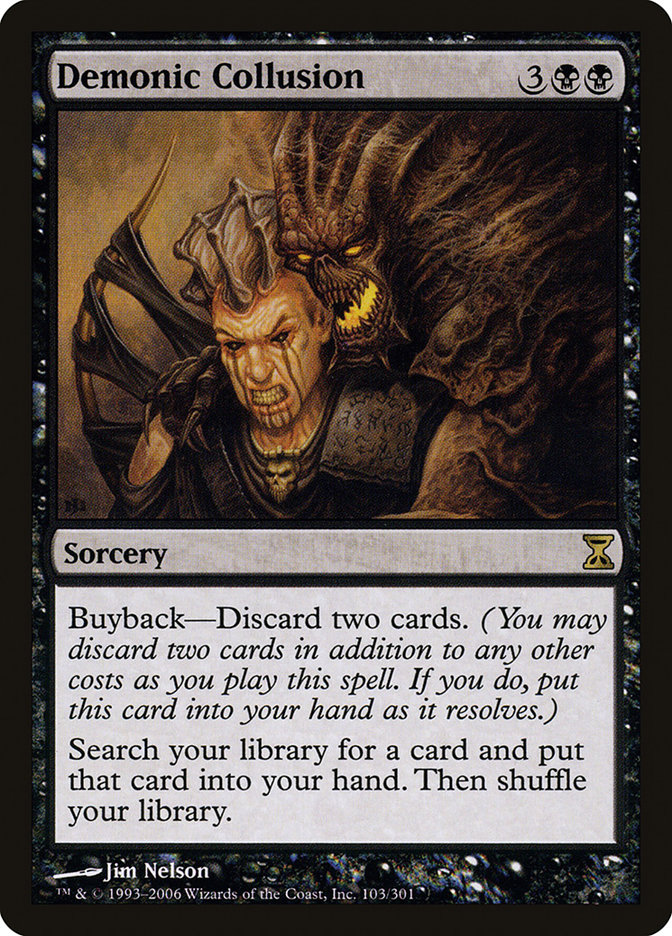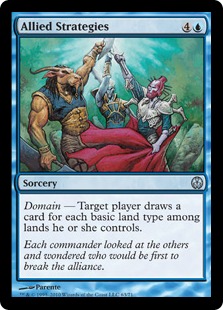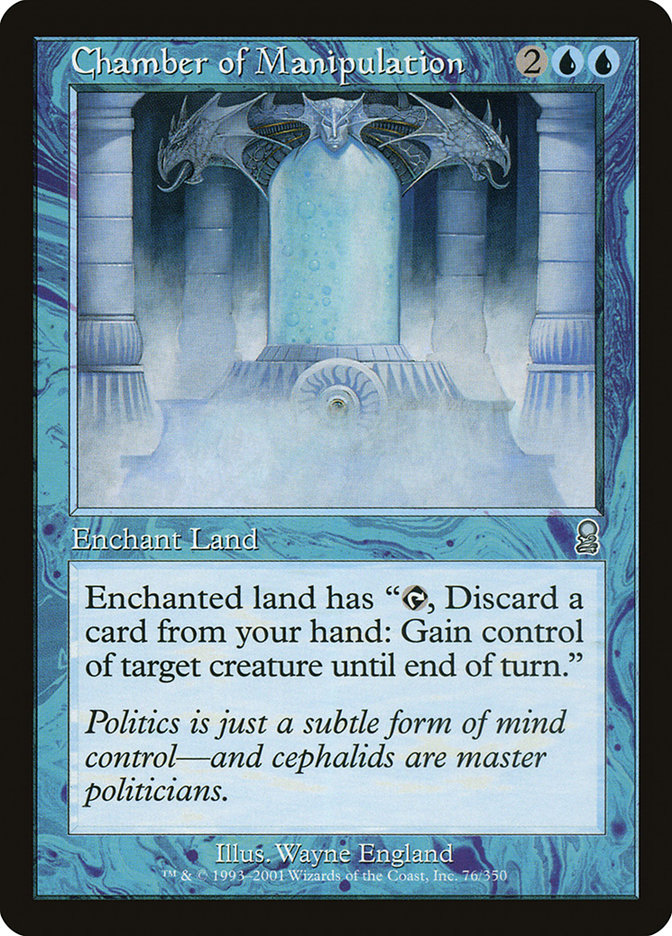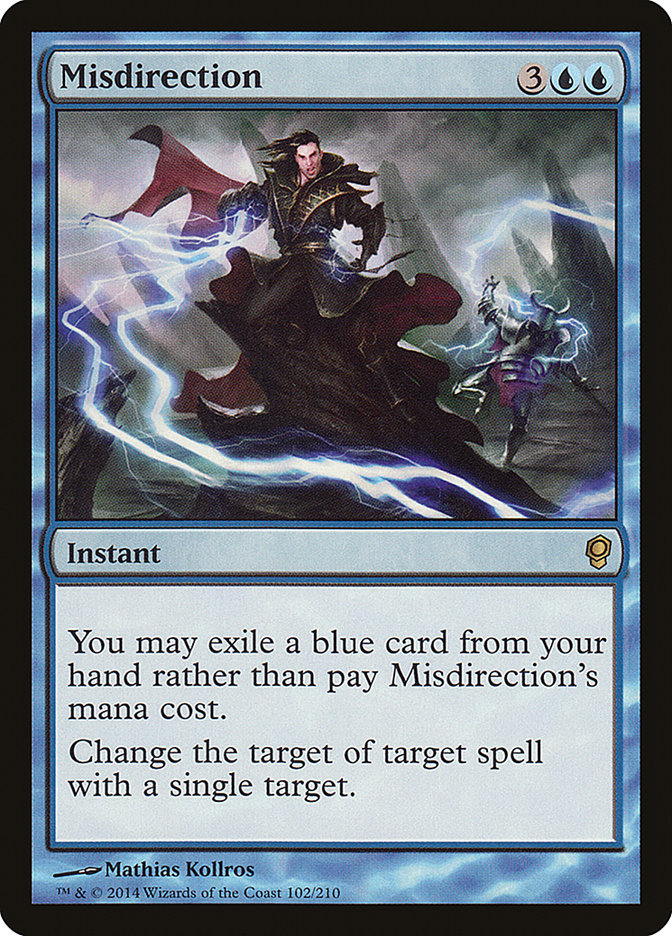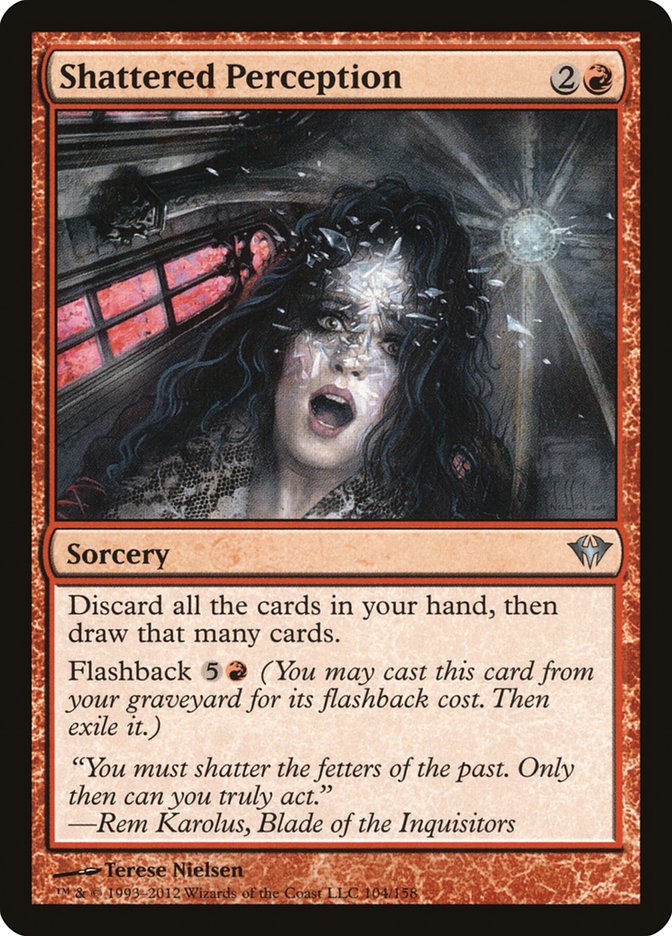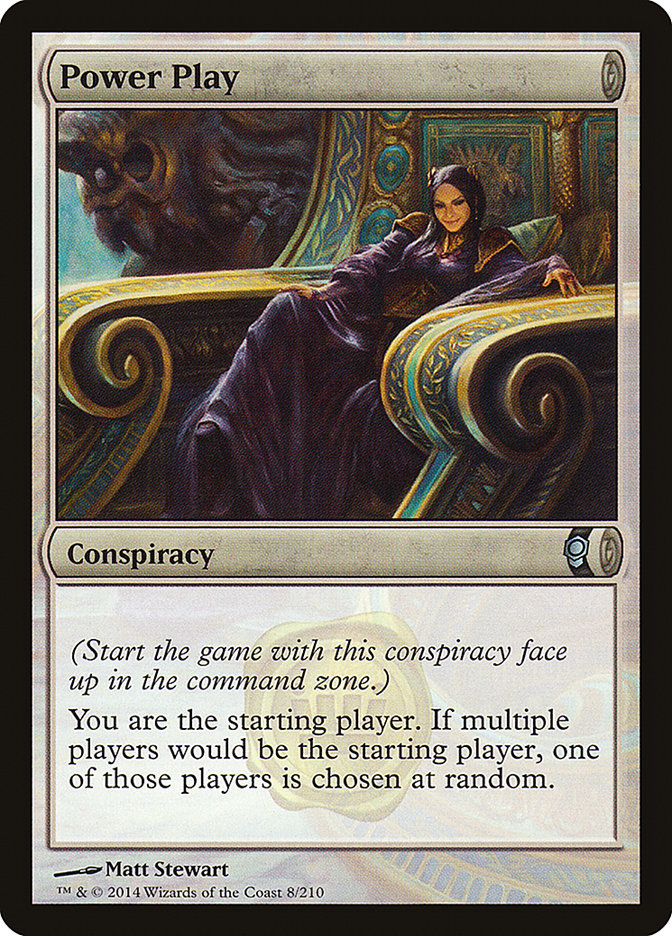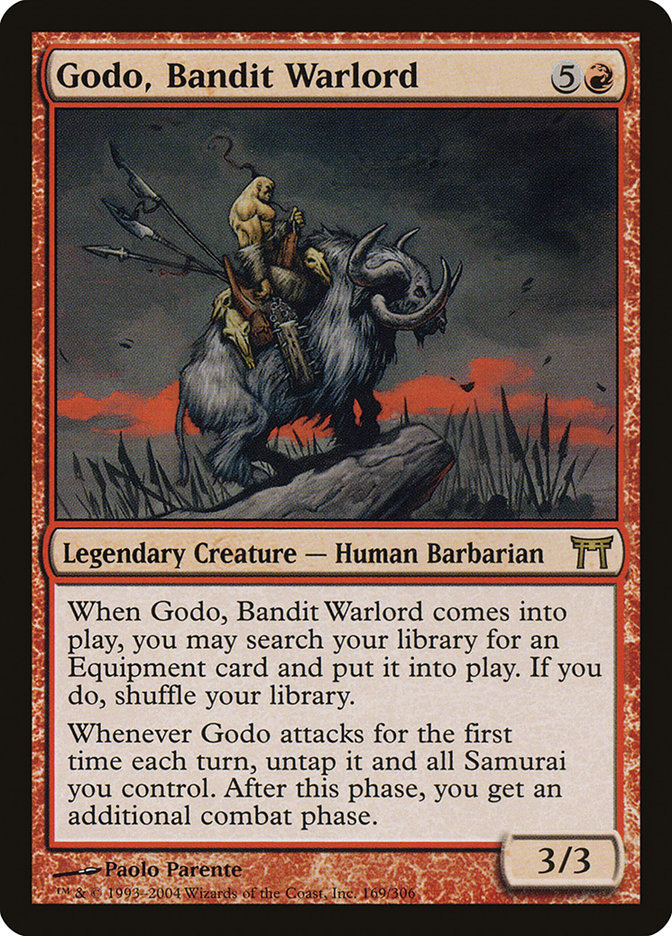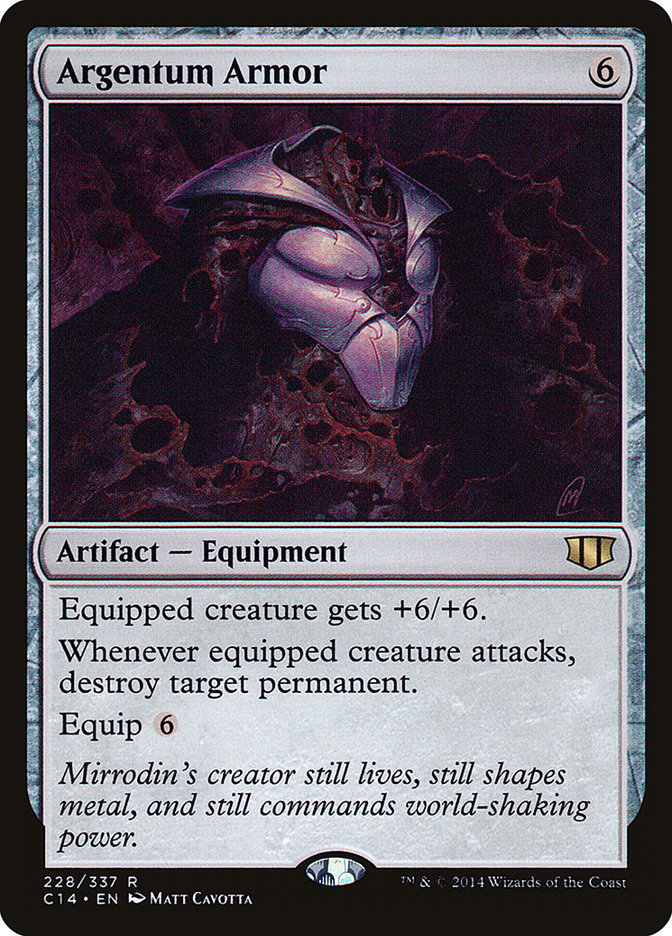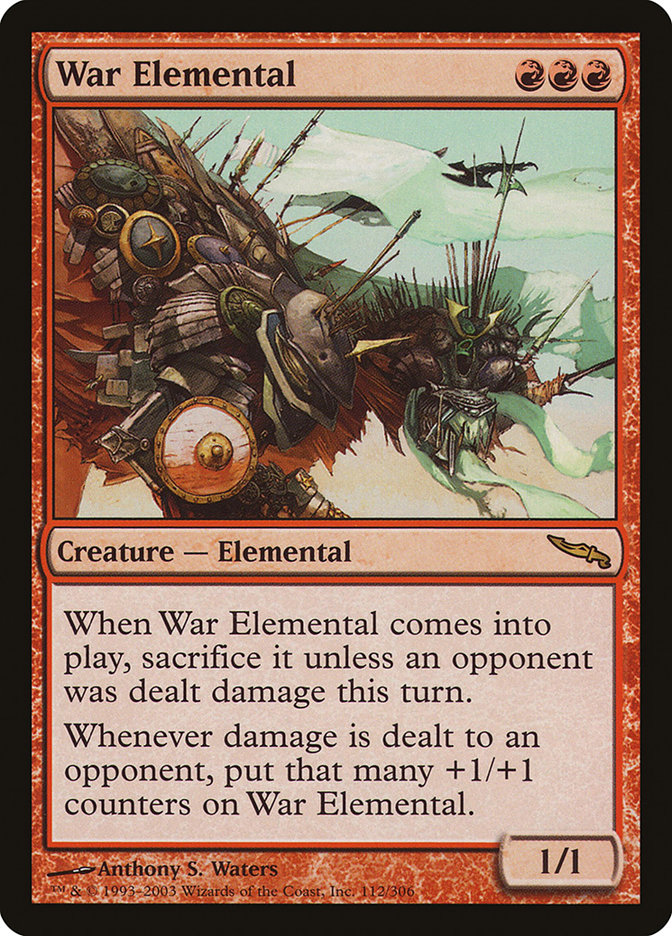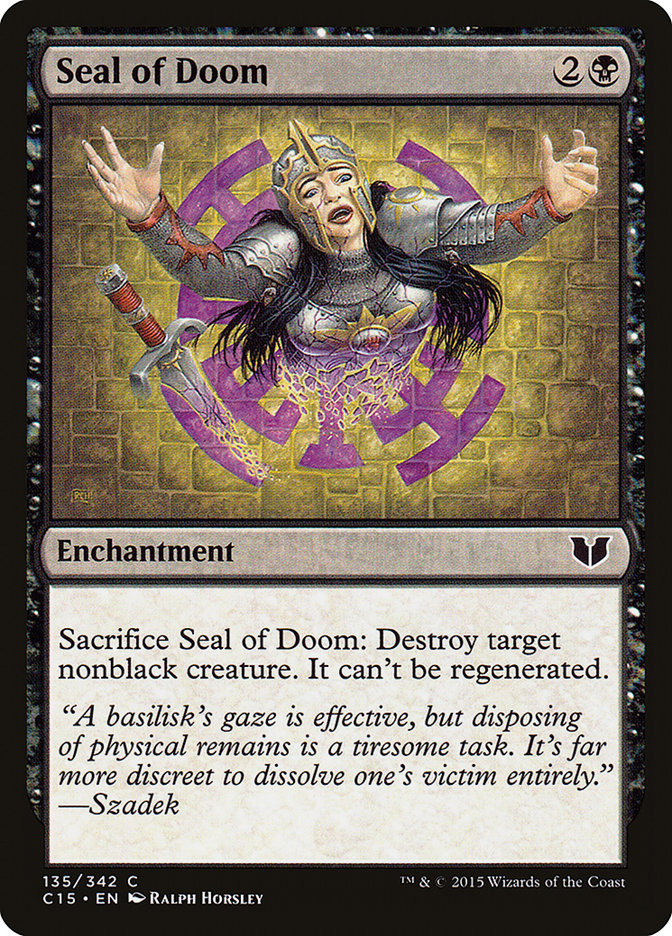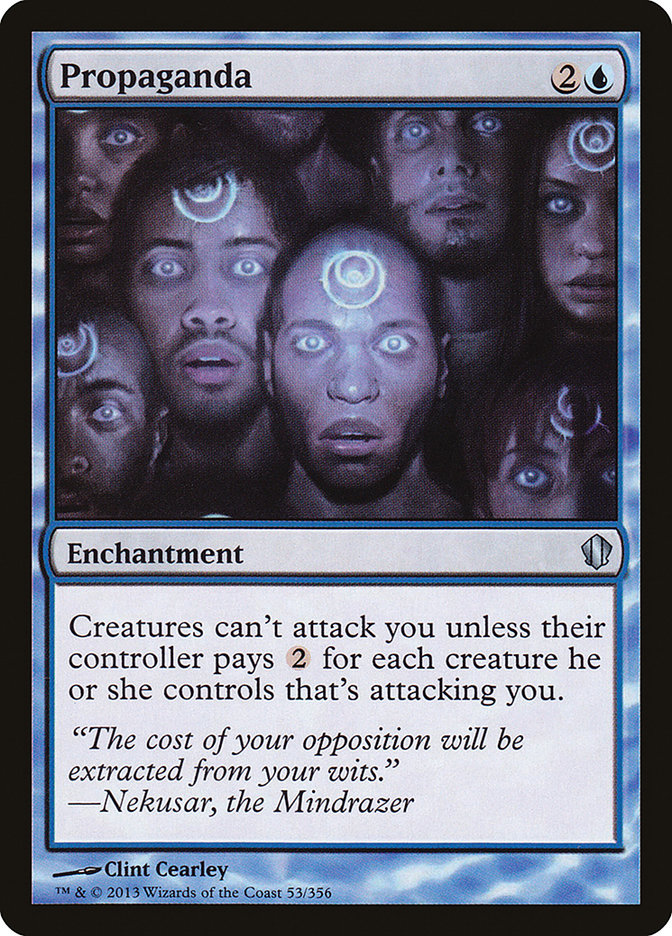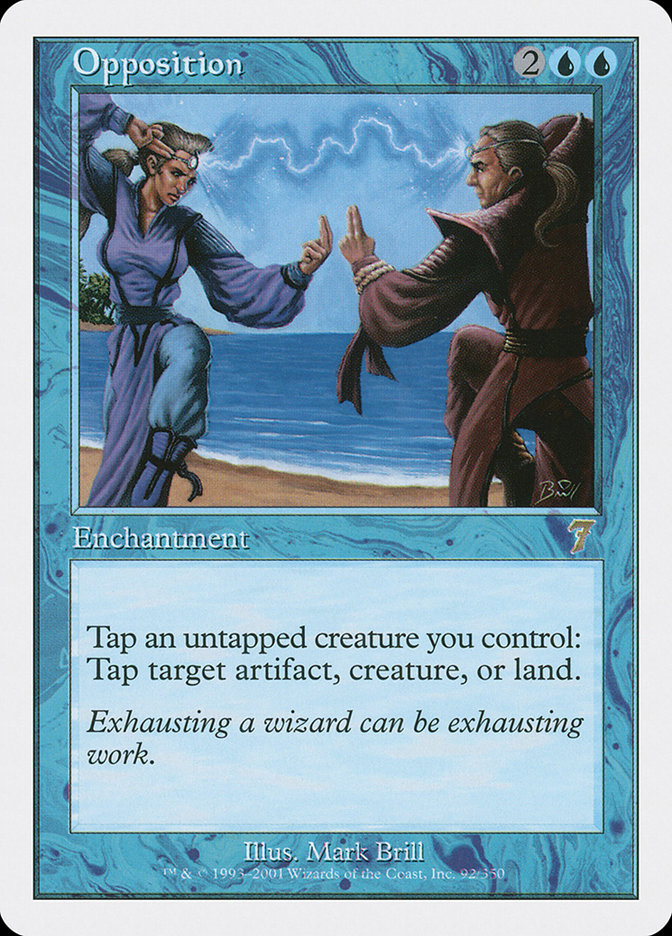Politics in Commander is a steaming pile of crap. Oh, I hear you foaming at the mouth and yelling. Screaming about games where politics helped you win. But you’re wrong.
What many people fail to see is that threat assessment wins games. Politics does nothing. Knowing three things allows you to act in the best capacity to win: what your deck can do, what your weakness is, and who is the biggest threat to you winning the game. These three things help you to continuously advance your game plan even when facing setbacks and opposition. Politics and manipulations do nothing to further this.
Politics most often breaks down into few main categories: collusion, alliances, and manipulation. Everything else is a shifted priority. Many people will claim Propaganda is a political card; just check forums and Reddit threats. Propaganda is not even close to being a political card. It is a card that forces a choice on opponents. They can either attack me with multiple creatures or further develop.
Collusion is the basis of working together. But often it is for mutual benefit or the benefit of a single player, not a big deal on its own, except when two friends use Trade Secrets to draw their whole decks and go into a war to combo off while the rest of the table is blown away. (Hint: there is a reason this card was banned.)
Alliances are for the weak. The strong can rarely ally. The Eldrazi wrecked two planes in the past year. They didn’t get allies. Instead Zendikar allied to fight them, the Gatewatch formed to fight the Eldrazi, and Vampires and cathars joined forces on Innistrad to retake Thraben.
The strong are allied against. If you are winning, you are not in an alliance.
Finally, we have manipulation. This works once. People learn, adapt, and don’t fall for your tricks ever again.
Some people disagree with this statement, like new General Damage Control member Edh.ghost, who supports politics in games. In fact, this article came from an argument I had on Twitter with Edh.ghost about politics in Commander.
First I’m going to tackle the politics that he pushes. Then I’ll explain more of my stance on threat assessment. You can decide how you feel about politics after reading our arguments.
The Art of Misdirection
You can make an argument how misdirection can send threats away. It doesn’t work. Oh, certainly, you can prey on less experienced players and new players. If your goal is to weaken your playgroup, then by all means misdirect and succeed.
But if your group is smart, this won’t work. If you want to help new players get better, then you won’t resort to this either. How can someone convince you of anything when you know what your deck can do, your weakness, and your threat? They cannot dissuade you from making good decisions.
Pointing out that another player has a tremendous battlefield state (or making a sacrificial attack into it to demonstrate), that a player has drawn a ton of cards, or that you’re underdeveloped compared to everyone else only matters if your opponents cannot assess threats. Trying to send someone in a different direction is not going to work against a table ready to rumble.
The Art of Deception
Yes, let’s lie!
That is a little extreme, I’ll admit, but whom are you looking to deceive? Your opponents can only be deceived once. After that, they catch on to your ploy and refuse to fall for it. You can use deception in a different manner from outright lies; the blatant lies will cost you games, no way around it.
This will often be used to try to set an opponent up to fail, which everyone expects, because this is a free-for-all format. Many typical tactics in a normal game fall into this category, like bluffs and baiting. When an opponent is casting a spell or announcing an attack and you start fiddling with your open mana, you aren’t doing anything political. This is something that players will do in a duel. It is about planting a doubt. If you consider this political, congratulations.
Baiting works the exact same way. When you need to resolve a key spell, it is typical to use another spell to bait a counter. Watch the SCG Tour ® or the Magic coverage on Twitch; this happens all the time. Baiting is just a tactic to ensure a critical spell resolves. This is not a political move in any capacity.
The Art of Opinion or Perception
This is all about trying to shift the table’s opinion or perceptions. According to many, including Edh.ghost, this is about highlighting the threats of opponents while downplaying your own. Do you see the recursion? This is simply deception and misdirection combined, which is one of my huge peeves against politics; there are few “political” moves, which all boil down to trying to lie low and direct attention elsewhere.
None of this accomplishes anything to win the game. Threats end games. Threats take out players. Threat accomplish goals. Politics may buy you some time, but only against the unprepared. If I know that the token deck is going to overrun me in almost every game, I am not going to back down and let that player build. Even directing her attention elsewhere will do me little good if Suzie dispatches an opponent and comes right after me.
The Art of Power
The art of power is something I mostly agree with Edh.ghost about. Destroying an opponent’s creature the moment it shows up is not usually the correct move. With multiple opponents, you are better off waiting until that creature is sent your way. Why not let your opponents do your work? However, this is not a political move. This is strategy and threat assessment. When an opponent has a greater threat than you, utilize threat assessment to determine if you need to interfere. I agree with Edh.ghost’s stance, even if our reasoning is slightly different.
Where I do not agree is in catapulting yourself into the lead. I have said several times what is best in life. A powerful start is an easy way to crush an opponent. A Mana Crypt, Sol Ring, Thran Dynamo, and a land opening is a wonderful method of getting Godo, Bandit Warlord out with an Argentum Armor much faster than your table can react.
Crushing an opponent with eighteen commander damage while denying two opponents their first lands from Argentum Armor’s effect will almost certainly help you win. However, explosive starts are subject to the same social contract stance I take with everything. I have played in groups where that opening would eliminate only a single player and others where I could wipe a table or two with that opening. You should always discuss expectations so everyone is on the same page for what is fair game.
Drawing the fire from the table is not a bad thing. The game is in a constant state of flux, and the Godo player is in a world of hurt when an opponent casts Nature’s Claim on turn 1 or turn 2 and destroys the equipment Godo fetched onto the battlefield.
The Art of Persuasion
I’ve covered the persuasion and misdirection stuff. I’ll focus on persuading people to help you. Only the weak can be convinced; only the weak need allies, and the strong are allied against. But if you are in a strong position, you can remove the weak before they ally and mount a defense. Keep your eyes open and your mind working.
When a player who had nothing all game wins, it means that threat assessment broke down. Sandbagging an answer or a threat is a viable tactic, but if someone is surprised when you win after holding back, they were not assessing threats during the game.
The Art of War
Sun Tzu’s work is the only art I believe in for Commander strategy. I find power and strategy to matter far more than the utilization of politics. Anthony Alongi’s strategy of making powerful plays and accepting that you are a threat is the best way to win. Rather than devoting any effort to convincing opponents that you are not a threat, I prefer to use rattlesnakes or other threats to keep an opponent away.
For example, if I have a Seal of Doom or Soul Snare, then my opponents are far less likely to attack me with a creature that can be hit with either of the enchantments. You can increase your defenses to send an opponent towards someone else. Defensive cards like Seal of Doom force your opponents to make a decision about how much they want to potentially lose in an attack. Emrakul, the Promised End is a fantastic card, but not when she runs right into a destruction effect.
Another situation that people often think is political is removing threats to a different player. If there is a control player who is giving me a lot of trouble while keeping the token player at bay with a Propaganda, destroying the Propaganda and allowing the token player to attack isn’t a political move but a strategic gamble. The token player could easily attack you with Intangible Virtue out and use a Furystoke Giant to eliminate the control player.
Your enchantment destruction didn’t guarantee anything; it just opened up a new option for an opponent. It is a gamble, similar to making an attack against Arthur in Risk so Betty can finish off a territory and deny Arthur the extra troops at the start of his turn.
The Art of Analysis
During a game, you should be continuously evaluating the game state. This is a difficult task and is mentally fatiguing until you get used to it. You have to keep practicing until it becomes second nature and uses almost no cognitive space. I said earlier you need to know three things to do well: what your deck can do, what your weakness is, and who is the biggest threat to you winning the game.
At all points of the game, you need to know what your deck can do. What cards can you draw? I know that with a huge deck it is difficult to remember all of the cards. But what you should know is what your deck can do. If you run a host of enchantment and artifact destruction but few answers to fliers, then you know you have little chance of outright destroying a flyer with a single card. But if you know that your deck packs a bunch of sweepers and cards that hate on tokens, you are not too worried when you see a Rhys the Redeemed at the table.
In addition to know what your deck can do, you need to know your weaknesses. Can your deck beat one of the decks in the pod if it is only the two of you? Is there something that your deck just struggles to interact with? Black and red decks struggle to interact with enchantments, so an enchantment-focused deck is always a weak point for these decks.
Knowing your weaknesses leads to understanding who is your biggest threat. Some players will try to trick their opponents into making bad decisions. But against a prepared table, this does not work. Instead, I recommend you use threat assessment to determine your focus. Trying to misdirect opponents or persuade them to go in a different direction is useless if they have assessed that you are their biggest threat.
Own your battlefield, accept your presence as a threat, and make good decisions. Remove key pieces from your opponent’s battlefield and attack the player who can cause you the most problems. If you are trying to lie low and surprise an opponent, you are willingly making yourself an easier target.
The Art of Debate
I know that many do not agree with my stance. Today at General Damage Control, Edh.Ghost will post his side of the pro-politics argument. Even if you agree with politics and try to craft your strategy around political actions, though, remember to use threat assessment. And for the love of all that is holy, do not lie to your table. They will turn on you. If they believe your lies, you are not helping anyone improve.
Do you follow threat assessment or politics for your pathway to victory? Do you use a different method we haven’t talked about?


